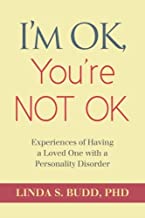Antisocial Personality Disorder
A mental health disorder characterized by disregard for other people.
Those with antisocial personality disorder (ASPD) may begin to show symptoms in childhood, but the condition can’t be diagnosed until adolescence or adulthood.
Those with antisocial personality disorder tend to lie, break laws, act impulsively, and lack regard for their own safety or the safety of others. Symptoms may lessen with age.
Treatment may include talk therapy and support for affected family members.
Cluster Number:
Wiki Number: W013
Diagnosis: Antisocial Personality Disorder
US Patients: 2%
World Patients:
Sex Ratio: M4, W; B2,G
Age Onset: Age 6-14, but usually improves by 40
Brain Area: genetic, extra testosterone, PFC
Symptoms: impulsivity, recklessness, crime, legal problems
Progression: ADHD, less serotonin, manipulative, homocidal, hurt family and friends
Causes: head trauma, extra gray (vs. white matter), family activities
Medications: antipsychotics, antidepressants, mood stabilizers
Therapies:
Youtube Video: Understanding Antisocial Personality Disorder
Amazon or Library Book: I’M OK, You’re NOT OK
Click the book to link or order from Amazon.

